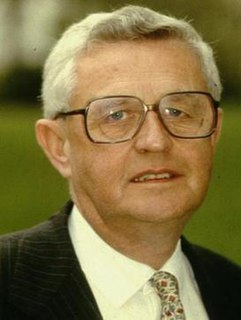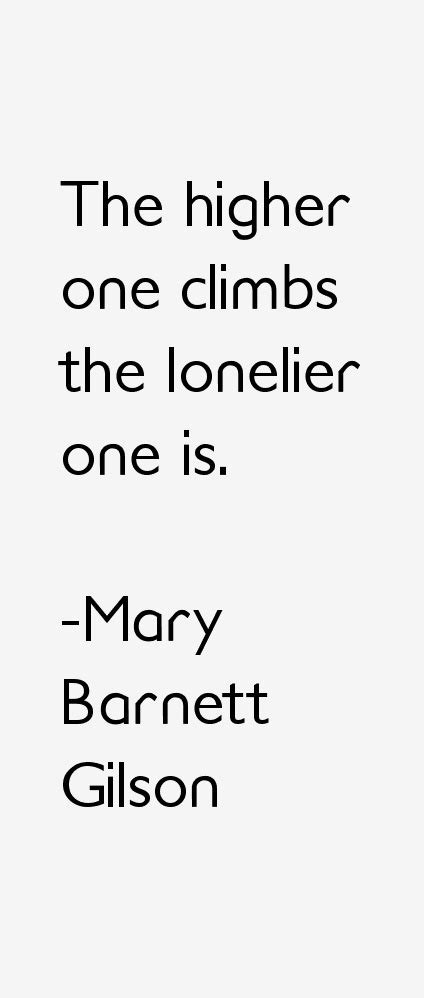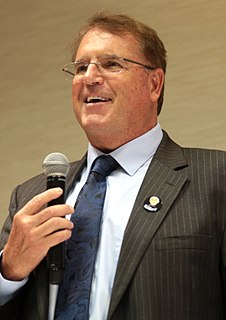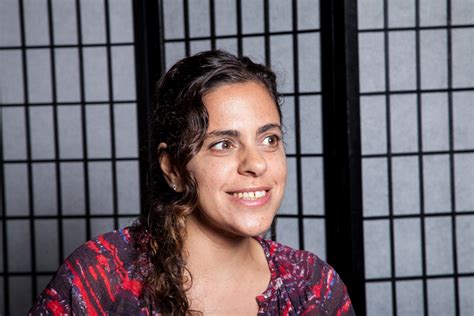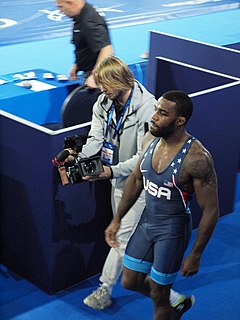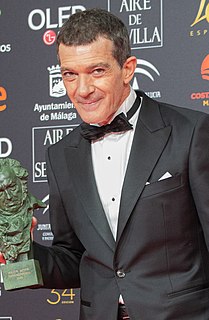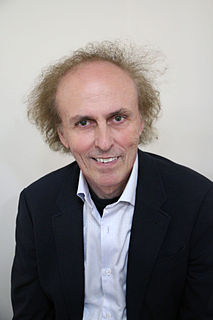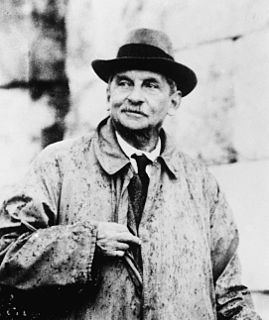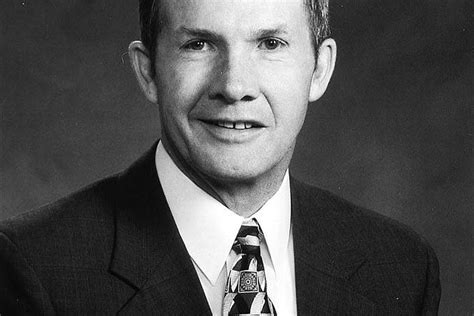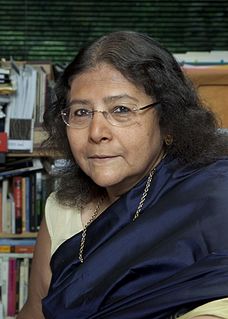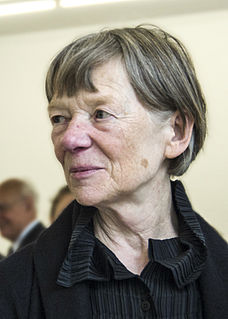Top 1127 Colleges And Universities Quotes & Sayings - Page 18
Explore popular Colleges And Universities quotes.
Last updated on April 20, 2025.
We have to acknowledge that we can't look to manufacturing or natural resources to drive growth like we have in the past. Human capital, talent, and knowledge are our most important resources now. Every city has hidden seeds of opportunity waiting to be nurtured. Places like Detroit, Cleveland, and Pittsburgh are among my favorite cities. They have great universities, clusters of innovation across a range of industries, and pools of innovative and creative talent to build on.
I have an older brother and an older sister - and they had the time of their lives at university. They were at Newcastle and Edinburgh. Looking up to them the whole time, I wanted to go to university and live the life they were living, having a blast, and I didn't get in. I didn't get into any of the universities I wanted to go to.
But before any great things are accomplished, a memorable change must be made in the system of Education and knowledge must become so general as to raise the lower ranks of Society nearer to the higher. The Education of a Nation, instead of being confined to a few schools & Universities, for the instruction of the few, must become the National Care and expence, for the information of the Many.
When the nazis came to power, I looked to the universities that prided themselves upon their intellectual freedom, and they failed me. I looked to the German press, which prided itself on the freedom of the press, and it failed me. Until at last the churches stood alone, and that for which I once had little regard earned my respect.
The demise of higher education as a public good is also evident in light of the election of a number of right-wing politicians who are cutting funds for state universities and doing everything they can to turn them in training centers to fill the needs of corporations. This new and intense attack on both the social state and higher education completely undermines the public nature of what education is all about.
Speaking as someone who bought the party line for far too long, you would be amazed what you can believe if you keep convincing yourself the press, the libs, the universities - hell, everyone but a few on the religious fringe and big business - are out to get you. I was lucky - I started to snap out of this a couple of years ago and hopefully will now apply to both major parties the same skepticism and cynicism I had in the past reserved for Democrats.
We must remember that intelligence is not enough. Intelligence plus character--that is the goal of true education. The complete education gives one not only power of concentration, but worthy objectives upon which to concentrate. The broad education will, therefore, transmit to one not only the accumulated knowledge of the race but also the accumulated experience of social living. If we are not careful, our colleges will produce a group of close-minded, unscientific, illogical propagandists, consumed with immoral acts. Be careful, brethren! Be careful, teachers!
A young professor I watched in action at one of our large eastern colleges used to stand with his back to the class and mumble explanations of blackboard problems. He was "let out" at the end of two years because students refused to attend his classes. He was given an evasive reason for his dismissal and he left with justifiable bitterness toward the administration. If someone had told him the truth he could have avoided this denouement. Sometimes professors go on for years without any conception of remediable faults which irritate their listeners.
How did scientists get money in the past? They were either lucky and independently wealthy, like Darwin, or they had patrons, like Galileo. Universities or governments have become patrons only in the last few generations. Many of the great scientists of the past were in debt to their patrons in the same sense that modern scientists are influenced by what their granting agencies want.
We have the greatest resource universities in the world, the only place in the world. We have the most productive workforce in the world. We have the most agile venture capitalists in the world. We have a situation where right now in the United States of America, we are near energy independent. North America is beginning to be the epicenter of energy. What is it that makes people think that this is not going to be the American century? I don't get it.
The great philosophers of the past who wrote so beautifully - Rousseau, John Stuart Mill - had to write beautifully because they had to sell their work to journals. They had to sell books to the general public because they could not hold positions in universities. Mill was an atheist, and, therefore, could not hold a position in a university.
On a more personal note we in this country we have a very tragic situation occur at one of our universities and, it really has taken the country aback and there's a real grieving process that we're going through, And going through it mourning and learning about the victims and-learning about it and showing our support, you know, I hesitate to say, how does your country handle what is that type of carnage on a daily basis?
I was born in Cuba. At the age of 14 years of age I was involved in a revolution. We were suffering from a very cruel, oppressive dictatorship, and the revolution started in the high schools and the universities. So when I was 14, I was involved in the revolution. I was in the revolution four years. During that time, a young, charismatic leader rose up in Cuba, talking about hope and change. His name was Fidel Castro.
Like Nietzsche, Heidegger also gave up on the prospect that schools and universities would nurture the kind of reflective openness to the way of things that, certainly by the 1940s, he identified with authentic thinking. The authentic person is not the Promethean, iron-willed figure that pops up in Nietzsche, but someone more like the Daoist sages whom Heidegger admired.
colleges being nothing but grooming schools for the middle-class non-identity which usually finds its perfect expression on the outskirts of the campus in rows of well-to-do houses with lawns and television sets in each living room with everybody looking at the same thing and thinking the same thing at the same time while the Japhies of the world go prowling in the wilderness to hear the voice crying in the wilderness, to find the ecstacy of the stars, to find the dark mysterious secret of the origin of faceless wonderless crapulous civilization.
I want to clarify that one doesn't need to be a scientist or have fancy college degrees to know the truth about the health of our children, our communities, and the planet. Community members generally know far more about the health of their own communities than visiting "experts," yet that knowledge is often discredited because of another story that we tell ourselves: "real" education happens [only] in the halls of universities.
I would like to say that whites jumped right behind Malcolm X. They’re makin’ a book about him, it’s required readin’ in all colleges now, and they’re makin’ a movie about him, and projectin’ him as the leader and if you read his book and see the movie that’s comin’ out, it’ll make you hate Elijah Mohammed and the Muslims. Mainly, this is done to turn the black people against the real leader and I’d like to say that this is the way white people rule.
Men didn't like to empty bedpans, so we made women nurses. Then men didn't like to do the administrative stuff, so women were allowed to become secretaries. That's the way they entered the work force. Then we began to educate them because they had to be educated. But it wasn't until after World War II that most of the great universities of this country became coeducational.
So long as the mental and moral instruction of man is left solely in the hands of hired servants of the public--let them be teachers of religion, professors of colleges, authors of books, or editors of journals or periodical publications, dependent upon their literary incomes for their daily bread, so long shall we hear but half the truth; and well if we hear so much. Our teachers, political, scientific, moral, or religious; our writers, grave or gay, are compelled to administer to our prejudices and to perpetuate our ignorance.
America's universities are filled with economically ignorant haters of the free market, so university campuses have become major forums for union denunciations of such companies as Nike, Wal-mart, and others. Faculty and students claim to be concerned about 'social justice,' but they are simply being used as dupes by unions who are not at all concerned with justice of any sort. Rather, their main concern is increasing the coffers of union treasuries by driving non-union competitors from the market.
If we agree that universities need to monitor sexual violence in various locations, and that they will require students to hew to a narrower set of rules than the wider world, how do we deal with putting these ideas into the brains of teenagers who have been schooled in the disgusting gender norms of our American culture for the previous eighteen years? This is the essential conundrum. Can we teach these relatively young dogs new tricks? I believe that we can.
There are, however, many challenges to Asian universities. First, academic freedom, in all senses, is much more critical to the success of a university than how much money is spent on infrastructure or on hiring big names. Faculty need to have the space to pursue the research that they are passionate about and the also need to have the freedom to express their opinions in the university, and in the society as a whole.
Photography was increasingly being seen as something outside the art world. As a sort of illustration. They just fired the director of photography at the Sunday Times Magazine - that's where everyone went with their photo essays in the '60s, '70s, and '80s. It was the place to get published. It is an issue. And I feel it. There's no budget. The budget-holders are very often people who've been to the professional colleges where art is not taught. So art as a part of education is something that's missing - since Thatcher's day, anyway.
Having taught economics courses at private vocational schools and universities, I have always had a problem with GNP as a yardstick of prosperity. GNP is improved by increases in questionable activities such as consumption of cigarettes and the production of weapons. Moreover, a substantial increase in car accidents will favorably affect GNP because more funerals, hospital visits, car repairs, and new car purchases will result.
When people ask me if musical theatre should be taught in music colleges, I reply that there is no need. All anyone needs to study is the second act of La Boheme because it is the most tightly constructed piece of musical theatre that there is. It is practically director-proof: you can't stage it badly because it just works too well. If you can write La Boheme, you can write anything. I would also recommend studying Britten's Peter Grimes.
There's enough food in this world. There's enough housing in this world. There's enough shelter in this world. There's enough clothing in this world. There's enough teachers, there's enough universities for everybody's needs to be met, and the reasons they aren't is not because of lack of resources. It's because of distribution, and that's the politics of hate, which is why this is a movement against that. It's a politics of love.
In other countries, rich and poor, education remains substantially free, with educational standards that rank high in global comparisons. Even in the US, higher education was almost free during the economically successful years before the neoliberal reaction - and it was a much poorer country then. The GI bill provided free education to huge numbers of people - white men overwhelmingly - who would probably never have gone to college, a great benefit to them personally and to the whole society. Tuition at private colleges was far below today's exorbitant costs.
For those of us who got into good colleges or the professions, did we stand up to that high school history teacher who told us some ridiculous lie about American history and say, "That's a ridiculous lie. You're an idiot"? No. We said, "All right, I'll keep quiet, and I'll write it in the exam and I'll think, yes, he's an idiot." And it's easy to say and believe things that improve your self-image and your career and that are in other ways beneficial to yourselves.
An indigenous culture with sufficient territory, and bilingual and intercultural education, is in a better position to maintain and cultivate its mythology and shamanism. Conversely, the confiscation of their lands and imposition of foreign education, which turns their young people into amnesiacs, threatens the survival not only of these people, but of an entire way of knowing. It is as if one were burning down the oldest universities in the world and their libraries, one after another — thereby sacrificing the knowledge of the world's future generations.
The last publicized center of American writing was Manhattan. Its writers became known as the New York Intellectuals. With important connections to publishing, and universities, with access to the major book reviews, they were able to pose as the vanguard of American culture when they were so obsessed with the two Joes--McCarthy and Stalin--that they were to produce only two artists, Saul Bellow and Philip Roth, who left town.
There were many generations of Latino people coming to this country, coming from difficult political or social situations in their own countries, and they worked very hard to have their kids go to universities. Well, those kids came out and they are now doctors and architects, or they are on the Supreme Court. That has a reflection in Hollywood. So, we are actually very proud that our characters are Latinos, and I think it's good for diversity and cultural interaction.
A German merchant of the fifteenth century asked an eminent professor where he should send his son for a good business education. The professor responded that German universities would be sufficient to teach the boy addition and subtraction but he would have to go to Italy to learn multiplication and division. Before you smile indulgently, try multiplying or even just adding the Roman numerals CCLXIV, MDCCCIX, DCL, and MLXXXI without first translating them.
In vain are Schools, Academies, and Universities instituted, if loose Principles and licentious habits are impressed upon Children in their earliest years . . . . The Vices and Examples of the Parents cannot be concealed from the Children. How is it possible that Children can have any just Sense of the sacred Obligations of Morality or Religion if, from their earliest Infancy, they learn their Mothers live in habitual Infidelity to their fathers, and their fathers in as constant Infidelity to their Mothers.
Modern schools and universities push students into habits of depersonalized learning, alienation from nature and sexuality, obedience to hierarchy, fear of authority, self-objectification, and chilling competitiveness. These character traits are the essence of the twisted personality-type of modern industrialism. They are precisely the character traits needed to maintain a social system that is utterly out of touch with nature, sexuality and real human needs.
I... [proposed] three distinct grades of education, reaching all classes. 1. Elementary schools for all children generally, rich and poor. 2. Colleges for a middle degree of instruction, calculated for the common purposes of life and such as should be desirable for all who were in easy circumstances. And 3d. an ultimate grade for teaching the sciences generally and in their highest degree... The expenses of [the elementary] schools should be borne by the inhabitants of the county, every one in proportion to his general tax-rate. This would throw on wealth the education of the poor.
I think the whole emphasis in England, in universities, on practical criticism (but not that so much as on historical criticism, knowing what period a line comes from) this is almost paralysing. In America, in University, we read - what? - T. S. Eliot, Dylan Thomas, Yeats, that is where we began. Shakespeare flaunted in the background. I'm not sure I agree with this, but I think that' for the young poet, the writing poet, it is not quite so frightening to go to university in America as it is in England, for these reasons.
What has happened to Africa is very severe. We are talking about the collapse of this and the collapse of that, of good government, of the economy particularly. And this has hit education badly. The news you get from the universities in Nigeria is often appalling. I don't think a lot of it gets out. There is the obsession with cults and all kinds of dreadful things going on and all this is taking its toll and it is not surprising that quality of students and graduates who come out is not good. It will not be surprising if this shows in the quality of work they do.
For years I taught in universities and high schools for classes of 30 or 35 students. Now I teach in very large venues with thousands of people in the audience. I used to have notes. Now I just let go and let God. I just allow it to come, and I didn't do that before. I never even used the word "God" for twenty or twenty-five years. Now it just rolls out of my mouth all the time.
Monsanto will not come empty-handed. Monsanto will come with a big bag of money. And because these governments are poor, when they are shown money for their research institutions, for their universities, for their professors, they are very quick to say yes, and I can tell you that when Monsanto came to Kenya, they were able to be given permission to do research in one of our research institutions, and yet there was not a single law to control such research.
If you look at the record and the enviable record which Sandra Day O'Connor has written, you find she was the fifth and decisive vote to safeguard Americans' right to privacy, to require our courtrooms to grant access to the disabled, to allow the federal government to pass laws to protect the environment, to preserve the right of universities to use affirmative action, to ban the execution of children in America.
Our whole educational system, from the elementary schools to the universities, is increasingly turning out people who have never heard enough conflicting arguments to develop the skills and discipline required to produce a coherent analysis, based on logic and evidence. The implications of having so many people so incapable of confronting opposing arguments with anything besides ad hominem responses reach far.
In schools, including universities, most resources are spent to purchase the time and motivation of a limited number of people to take up predetermined problems in a ritually defined setting. The most radical alternative to school would be a network or service which gave each man the same opportunity to share his current concern with others motivated by the same concern.
No university ought to be merely a national institution....The universities should have their common ideals, they should have their common obligations toward each other. They should be independent of the governments of the countries in which they are situated. They should not be institutions for the training of an efficient bureaucracy, or for equipping scientists to get the better of foreign scientists; they should stand for the preservation of learning, for the pursuit of truth, and in so far as men are capable of it, the attainment of wisdom.
We have emphasized the importance of applied action research because it allows evidence-based policy and program development and a focus on learning. We are also committed to using a participatory approach in which local people, local program managers and providers, local researchers, women's health activists, and national decision-makers play the leading role. International "experts" from technical assistance agencies or universities can make important contributions, but they certainly don't have all the answers.
Many of the most important principles of intelligence cannot by taught at universities, from books, or through other temporal learning processes. Often these great principles are learned from afflictions, tribulations, and other mortal experiences. All that we learn in this manner will benefit us not only in this life but also in the next, for 'whatever principle of intelligence we attain unto in this life, it will rise with us in the resurrection'.
Mr. Hillaire Belloc has pointed out that science has changed greatly, and for the worse, since it became popular. Some hundred years ago, or more, only very unusual, highly original spirits were attracted to science at all; scientific work was therefore carried out by men of exceptional intelligence. Now, scientists are turned out by mass production in our universities.
We need a more widely shared burden on the part of society to keep asking, "What are our collective values, what kind of world do we want to bequeath to our children, and to what extent are these particular technological developments helping us go in those directions? I think that corporations, every bit as much as governments, social movements, and universities - we all have a role to play in asking those questions. I don't think anybody should have a monopoly on that responsibility.
Don't assume that the way that one searches and researches is the same from one era to another - it isn't. In the 19th century, most research was done by amateurs: either individuals who were rich or individuals who had a day job. In the 20th century, most researchers worked at universities or think tanks and received money from the government or from foundations to pursue their work. In our time, the sources of support and the locations for research may be quite different.
Student debt is structured to be a burden for life. The indebted cannot declare bankruptcy, unlike Donald Trump. Current student debt is estimated to be over $1.45 trillion. There are ample resources for that simply from waste, including the bloated military and the enormous concentrated private wealth that has accumulated in the financial and general corporate sector under neoliberal policies. There is no economic reason why free education cannot flourish from schools through colleges and university. The barriers are not economic but rather political decisions.
The feeling persists that no one can simultaneously be a respectable writer and understand how a refrigerator works, just as no gentleman wears a brown suit in the city. Colleges may be to blame. English majors are encouraged, I know, to hate chemistry and physics, and to be proud because they are not dull and creepy and humorless and war-oriented like the engineers across the quad. And our most impressive critics have commonly been such English majors, and they are squeamish about technology to this very day. So it is natural for them to despise science fiction.
The Jews celebrate Passover by eating unpalatable food to remind them what will happen to their people if they ever leave New York City. The traditional meal often includes gefilte fish. For those of you who don't know what gefilte fish is, it strongly resembles a ball of tuna fish that has been passed nasally. It's not good. During Passover, the angel of death passed over the Jews - an event that, up until the late 1950s, was re-enacted every year by Ivy League colleges and suburban country clubs.
I photograph in public and semi-public spaces that date from various epochs. These are spaces accessible to everyone. They are places where you can meet and communicate, where you can share or receive knowledge, where you can relax and recover. They are spas, hotels, waiting rooms, museums, libraries, universities, banks, churches and, as of a few years ago, zoos. All of the places have a purpose, as for the most part do the things within them.
For a while the creative writing community sort of sprung out of places like Iowa and Syracuse. The graduates sort of went out, and they would found creative writing departments in the little colleges where they went, and then some of those would found other ones. I mean every college has got a creative writing department, so where are the jobs coming from? There are not any jobs out there.
I was quite straight-laced. I was quite academic until I was about 14 and then I went to boarding school where I had the opportunity to continue to be very academic, but got less interested in it and became more involved in acting. And then when I was applying for universities I used a couple of places on my UCAS form to apply for drama school without telling anyone... but didn't get into drama school. But that was the most rebellious thing I did.
The United States are such a large place. And there are some states and some cities where the questions of gender or sexuality would not be asked, or where scholars or academics are working in small little corners of the universities trying to raise these questions and being told that either that they're strange or not appropriate or being actively opposed. There are other places where there is very active scholarship going on. Certainly on gender.
I turn my eyes to the schools & universities of Europe And there behold the loom of Locke whose woof rages dire, Washed by the water-wheels of Newton. Black the cloth In heavy wreaths folds over every nation; cruel works Of many wheels I view, wheel without wheel, with cogs tyrannic Moving by compulsion each other: not as those in Eden, which Wheel within wheel in freedom revolve, in harmony & peace.






